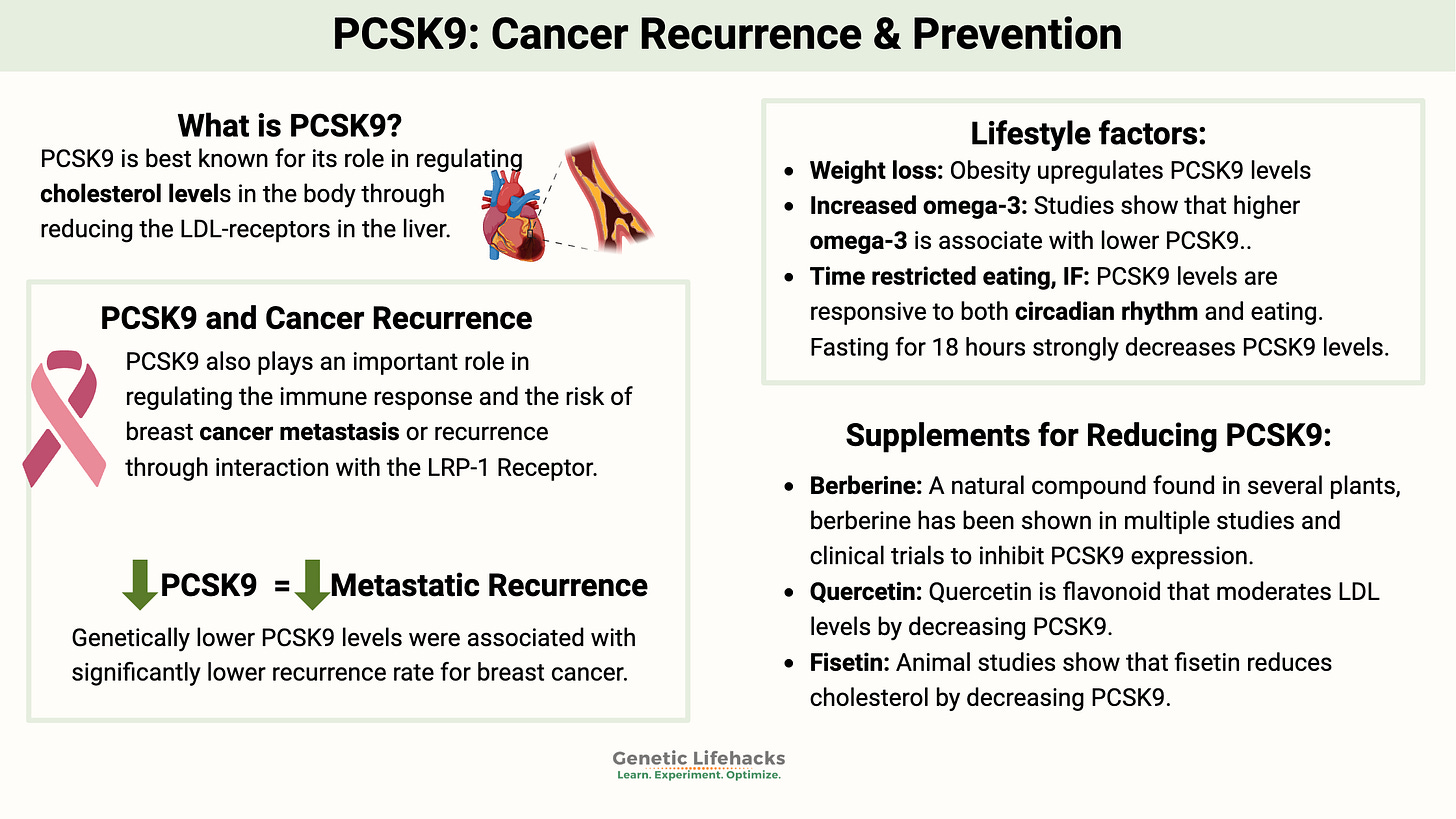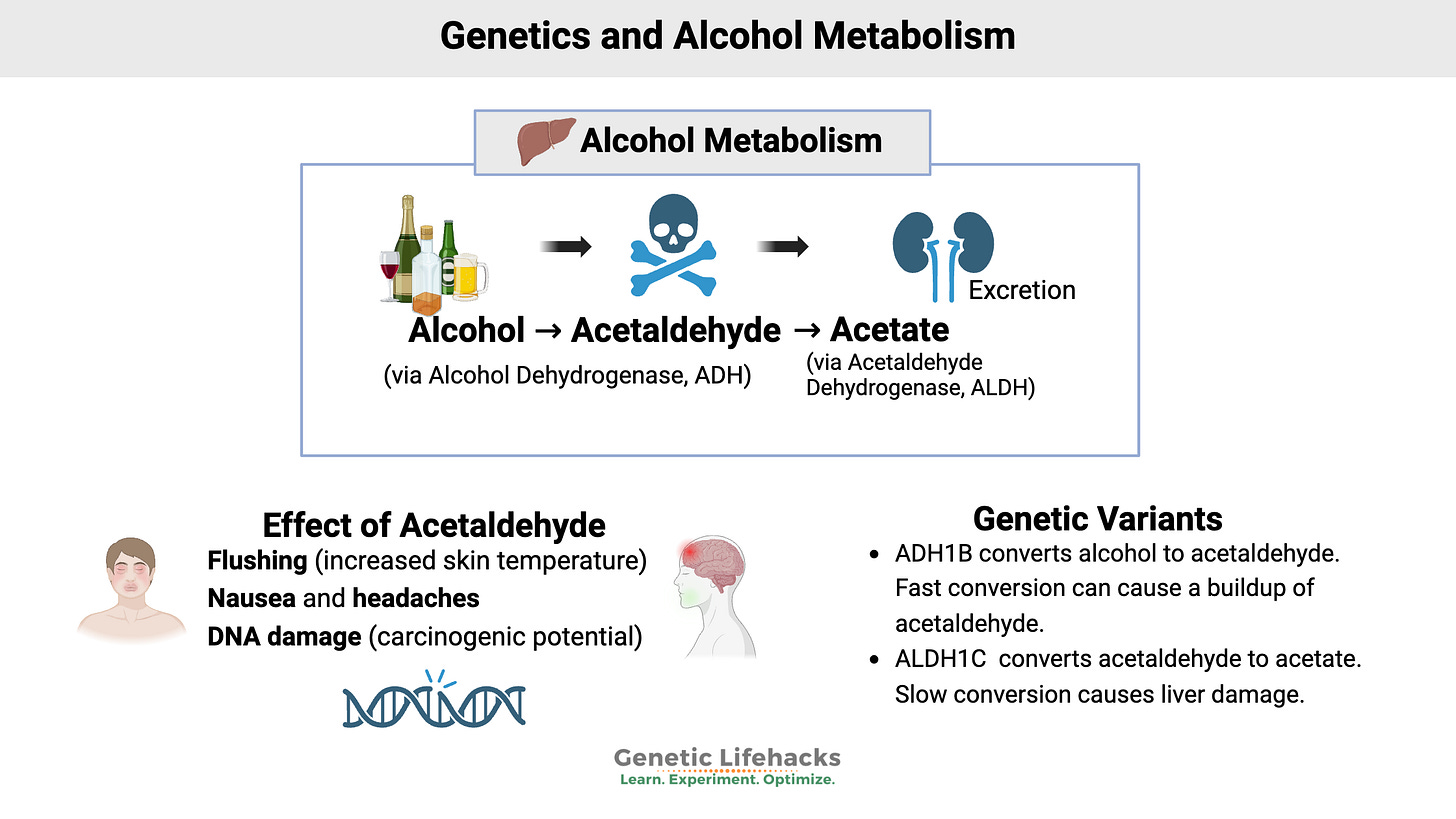PCSK9 and Cancer Metastasis Prevention
I love it when members - or even the researchers themselves - send me new and interesting studies. Both happened this past week :-)
The amount of new research on genetics, nutrition, environment, and health is both amazing and overwhelming. My goal is to spread the word about important research so that you don't have to wait years for the information to be adopted into use by the establishment.
A Genetic Lifehacks member sent me an interesting study on how PCSK9 variants interact with the risk of breast cancer metastasis and recurrence. This set me on a path to read and write about the latest research on PCSK9 and how it affects both the risk of certain cancers and the risk of metastatic recurrence.
PCSK9 is often used as an example of how genetic research can rapidly drive innovation. In 2003, mutations in PCSK9 were identified as a cause of familial hypercholesterolemia (really high cholesterol). This led to a better understanding of the regulation of LDL cholesterol and the development of PCSK9 inhibitors, which were first approved in 2015, which is fast for drug development, clinical trials, and FDA approval. PCSK9 inhibitors are now available as an (expensive) alternative to statins. But it looks like cholesterol is only part of the story with PCSK9, which has now been shown to interact with other receptors, the immune response, and even cancer risk.
I've been reluctant to write much about cancer and genetics for many reasons -- fear of explaining something poorly, upsetting someone, getting something wrong, or including research studies that end up being incorrect.
However, I know several people who have recently been diagnosed with cancer. I'm realizing there is a disconnect between what is known in research and what is easily available to someone looking for information.
While I still won't be publishing articles with scary headlines about your genetic risk for the big "C," I will be writing more about genetics and cancer prevention over the next year. We all need to know this stuff!
Wishing you all a Merry Christmas and Happy Holidays,
~ Debbie
PCSK9: Cancer Recurrence & Prevention
Key takeaways:
~ PCSK9 is an enzyme that helps regulate cholesterol levels by reducing LDL receptor uptake in the liver. It also affects the immune system, interacting with MHC I and reducing LRP1 levels.
~ In several types of cancer, lower PCSK9 levels are associated with a reduced risk of cancer metastasis.
~ Animal studies show that inhibition of PCSK9 can reduce metastasis in several types of cancer.
~ Genetic studies show that higher PCSK9 levels correlate with a higher rate of breast cancer recurrence (22%) while genetically lower PCSK9 levels were associated with a lower rate of breast cancer recurrence (2%).
Alcohol Metabolism Genes
Key takeaways:
~ Alcohol metabolism is a two-step process: Alcohol is converted to acetaldehyde (toxic), which is then converted to acetate for easy excretion.
~ Genetic variants in the ADH1B and ALDH2 genes affect the speed of alcohol metabolism.
~ ADH1B variants can cause a faster buildup of acetaldehyde.
~ ALDH2 variants can slow acetaldehyde clearance, leading to flushing, nausea, and headaches.
What I've been reading:
This is a cool new study that explains why variants in ABCC11 lead to a lack of body odor.
If you want to check your ABCC11 gene variant, you can do so here.
2.) Microplastics in uterine fibroids
Another new study shows a worrisome interaction with microplastics. This study found that microplastics were incorporated into some uterine fibroids and that the levels in fibroids were higher than in surrounding tissue.
3.) FDA halts RSV vaccine for babies
In the Moderna RSV trial, there were serious concerns that the vaccine actually made some infected kids sicker. Moderna had halted its RSV vaccine trial and the FDA this week halted other pharmaceutical companies' RSV clinical trials.





Thanks for this, Debbie! I made a new board on Pinterest called "Health" and I put the chart there.